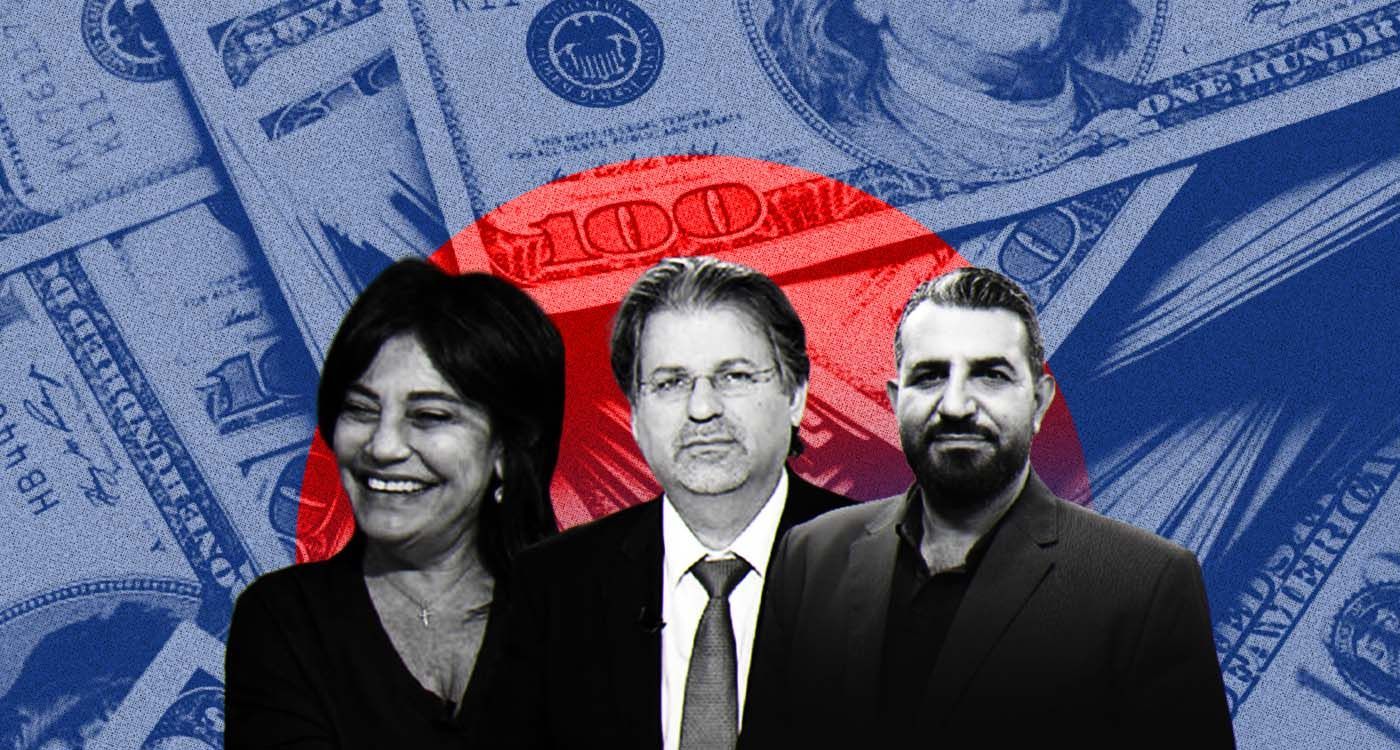
Trump's strong dollar policy could have profound effects on Lebanon’s struggling economy, which has been in decline for over five years. The 1971 remark by former US Treasury Secretary John Connally feels more relevant than ever: “The dollar is our currency, but it’s your problem.” Connally made this statement to European officials as the US ended the Bretton Woods system, severing the dollar’s convertibility to gold.
While the dollar’s value is primarily shaped by US domestic factors, its fluctuations continue to ripple through the global economy. A 2023 International Monetary Fund (IMF) study found that the negative impact of a strong dollar tends to last around two and a half years in emerging markets, compared to just one year in developed economies. The study highlighted that a 10% rise in the dollar’s value would, after a year, lead to a 1.9% drop in output for emerging economies, while advanced nations would see a milder decline of 0.6%.
Stock Market Euphoria
The economic policies promised by President-elect Donald Trump have sparked investor optimism, with expectations that the incoming administration will drive US corporate profits higher through tax cuts, deregulation, and increased government borrowing.
Moreover, the recent surge in US stock markets and the dollar’s movement provide a glimpse of what could unfold during at least part of Trump's tenure. The Standard & Poor’s 500 index, which includes leading US companies, set consecutive record highs on November 6, 7, and 8.
The euro weakened on Tuesday by 0.5%, falling to $1.0596—its lowest point in a year—while the yen slipped by 0.7% to 154.8 per dollar. The Canadian dollar also declined for the third straight day, nearing its lowest level in four years.
Dollar Shortage in Lebanon
In an interview with This is Beirut, Nicole Ballouz Baker, Associate Professor at Saint Joseph University (USJ), explains that the optimism triggered by Trump's election led to a surge in demand for the dollar, causing its appreciation. For the United States, this results in cheaper imports but less competitive exports. However, for Lebanon, an import-dependent country, the impact is reversed: it faces imported inflation.
She notes that although Lebanon’s economy is largely dollarized, which could theoretically improve purchasing power, the situation is different. “The economic recession, which has reached 50% due to the war, has drastically reduced dollar inflows, especially from tourism and investments. Our dollar reserves at the Central Bank are insufficient to cover the costs of the war. This will force an increase in the local money supply through printing Lebanese pounds, further fueling inflation. It's a vicious cycle that's difficult to break.”
Depreciation of the Lebanese Pound
In a separate interview with This is Beirut, economic expert Jassem Ajaka observes that in Lebanon’s informal dollarized economy, where the national currency coexists alongside the dollar—used extensively for transactions, savings, and loans—an appreciating dollar inevitably leads to further depreciation of the Lebanese pound. However, he stresses that the current exchange rate does not reflect Lebanon's true economic conditions, comparing it to a series of “fake knockouts” in a combat sport, where one side is simply stalling for time.
“In other words, given the political, military, and financial pressures (such as being on the grey list), the dollar supply should decrease in the medium to long term,” he explains. He also points out that “the State uses dollars, even though it has no real revenue in that currency.” The Central Bank buys dollars from the market using Lebanese pounds from its reserves, then recovers them through a fiscal policy that forces taxpayers to make payments in cash, in Lebanese pounds.
While the recent global appreciation of the dollar may temporarily enhance the purchasing power of the Lebanese people, a contraction in the dollar supply circulating within the economy is likely inevitable in the long term.
Jassem Ajaka suggests that a return to using LBP in the economy would more accurately reflect the country’s true economic health and the situation of its public institutions.
In this case, the national currency would likely experience further depreciation against the dollar.
Dollar Injection by the BDL
Economist Mahmoud Jébae offers a different perspective, choosing not to speculate on the effects of a strong dollar on Lebanon's economy. He argues that “the rise of the dollar currently has more of a psychological impact than a tangible economic one.”
Jébae believes that the BDL will continue injecting dollars into the market, while hoping for a swift resolution to the ongoing conflict. Additionally, he highlights the annual inflow of approximately $13 billion from remittances by the diaspora, exports, and aid from international NGOs, which, in his view, dismisses any immediate risk of a currency shortage.
Trump’s Opposition
That being said, the strengthening of the dollar is contrary to the preferences of Donald Trump, as noted by some analysts. Trump has long argued that a strong dollar hurts domestic manufacturers and costs US jobs, but he has limited ability to pressure the Federal Reserve to lower interest rates. As long as inflation remains high, interest rates will likely stay elevated, ensuring that the US currency continues to be a preferred safe haven for investors.




Comments